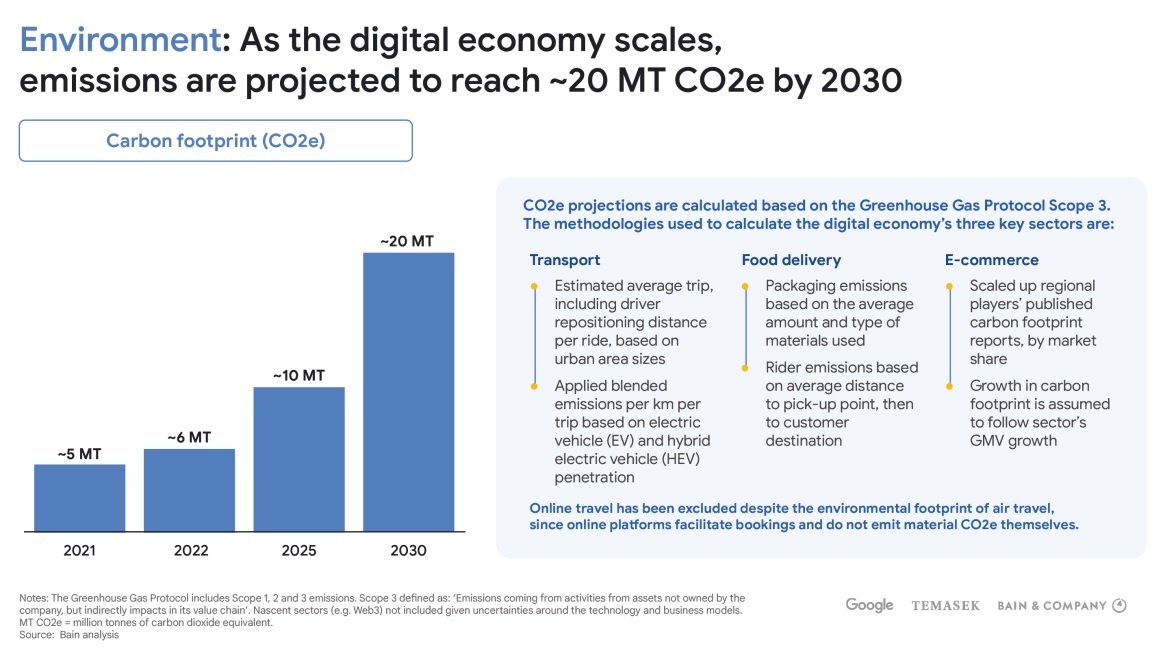E-commerce groups engage in effective green strategies
 |
At the Road to Green forum on July 21, hosted by the Vietnam E-commerce and Digital Economy Agency (iDEA) and the Vietnam E-commerce Association in Hanoi, iDEA representative Bui Trung Kien noted that legal documents on e-commerce seem to focus only on rapid development, not the concepts of green, sustainability, or the environment.
“We are missing incentives, guidelines, and even preferential regimes for e-commerce businesses towards green development, reducing carbon footprint,” Kien said.
According to him, China already has provisions stipulating that goods manufacturing enterprises and e-commerce enterprises must comply with environmental requirements and use friendly packaging materials. This law also binds the responsibility of the government and authorised agencies to have solutions to support the development of environmentally friendly transportation, warehousing, and packaging activities.
Le Hoang Oanh, director general of the iDEA under the Ministry of Industry and Trade, said that although e-commerce has grown rapidly, it has revealed many unsustainable factors, especially the negative impact on the environment.
“In online retail, there are two main stages that negatively impact the environment: delivery and packaging of disposable products. So optimising shipping costs not only helps businesses reduce costs but also has the effect of reducing emissions,” Oanh said.
Retail e-commerce revenue in Vietnam reached $10.3 billion in the first six months of this year, up about 25 per cent on-year and accounting for 7.7 per cent of the country’s sales of consumer goods and services, according to the iDEA.
In fact, with fierce competition across platforms, e-commerce businesses have also deployed many innovative solutions to reduce negative impacts on the environment and to cut their own costs.
Vu Duc Thinh, Logistics Director of Lazada Vietnam, said the group has committed to building a sustainable, responsible business, as well as controlling the impact on the environment, such as Green Delivery, LazEarth, and improvements in packaging as well as the release of a handbook “Effective, Environmentally Friendly Packaging of Goods” that helps partners reduce plastic waste in its products and packaging.
According to Thinh, currently, businesses that follow green criteria are completely self-directed and self-implemented. There has not been a specific standard to evaluate, so it leads to a lack of synchronousness. In addition, the administrative procedures and paperwork still take numerous steps to implement.
“The government and agencies need to set out specific criteria and standards for the development of e-commerce and green logistics. This will serve as a basis for businesses to implement and easily synchronise standards in the management process,” Thinh suggested.
Ngo Thi Nhu Quynh, marketing director of delivery company Ahamove also said, “With tens of thousands of orders being delivered every day, in thousands of different locations, our problem is how to make everything move effectively and with the largest number of orders being delivered.”
Transportation costs currently account for more than 60 per cent of logistics costs. “As a result, we provide both customers and drivers with tools to increase productivity and maximise benefits, such as software-as-a-service for operation management, and technology for optimising distance mapping,” Quynh added.
Phan Trong Le, director of Brand Research and Development at Vietnam Post, said it has made efforts and measures over time to minimise negative impacts on the environment in order to achieve a sustainable balance towards all three goals, namely economic, social, and environmental.
“We always use glass water bottles instead of plastic bottles, as well as encourage employees to plant trees in office premises and service points. Besides that, we also focus on making use of recycled materials, waste products, and by-products in the production process and transportation,” Le said.
Packages used to represent convenience, but now they are less friendly because of waste in the environment. Data from Shorr’s 2022 Sustainable Packaging Consumer Report noted that e-commerce packaging is the largest source of waste in the industry, six times higher than the amount of waste discarded after buying at stores. Therefore, when green and sustainable growth is the general trend of the global economy, e-commerce cannot be left out.
The E-Conomy SEA 2022 report by Google, Temasek, and Bain said that the Southeast Asia digital economy is expected to produce 20 metric tonnes of emissions by 2030, deemed significant albeit an order of magnitude lower than other environmental impact-intensive sectors. Digital players have been rolling out reducing and recycling initiatives, but more can be done to further lower impact by up to 30-40 per cent over time, it added.
 | Flexible sales methods push e-commerce sellers ahead With the shopping experience combined with entertainment becoming more likely to affect consumer decisions, the attractiveness of e-commerce platforms may depend on how much they innovate. |
 | Vietnam to launch unified e-commerce platform across 63 cities and provinces The Department of E-Commerce and Digital Economy, under Vietnam's Ministry of Industry and Trade (MoIT), is leading an initiative to create a unified e-commerce platform spanning all 63 cities and provinces. |
 | Digital transformation takes over logistics of the future Changes in e-commerce have prompted the logistics industry to improve the way it provides services in a more professional and efficient manner via digital transformation. |
 | TikTok Shop dethrones Lazada in Vietnam's e-commerce sector Having launched just last year, TikTok Shop has rapidly ascended the ranks in Vietnam's e-commerce sector, dethroning Lazada from its position as the second-largest platform by revenue, according to the latest data from market analyst firm, Metric. |
What the stars mean:
★ Poor ★ ★ Promising ★★★ Good ★★★★ Very good ★★★★★ Exceptional
Related Contents
Latest News
More News
- Masan Consumer names new deputy CEO to drive foods and beverages growth (February 23, 2026 | 20:52)
- Myriad risks ahead, but ones Vietnam can confront (February 20, 2026 | 15:02)
- Vietnam making the leap into AI and semiconductors (February 20, 2026 | 09:37)
- Funding must be activated for semiconductor success (February 20, 2026 | 09:20)
- Resilience as new benchmark for smarter infrastructure (February 19, 2026 | 20:35)
- A golden time to shine within ASEAN (February 19, 2026 | 20:22)
- Vietnam’s pivotal year for advancing sustainability (February 19, 2026 | 08:44)
- Strengthening the core role of industry and trade (February 19, 2026 | 08:35)
- Future orientations for healthcare improvements (February 19, 2026 | 08:29)
- Infrastructure orientations suitable for a new chapter (February 19, 2026 | 08:15)

 Tag:
Tag:



















 Mobile Version
Mobile Version